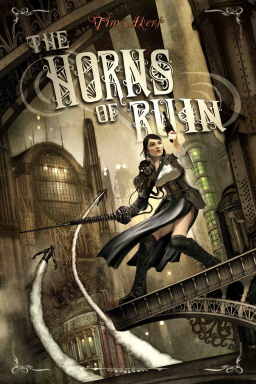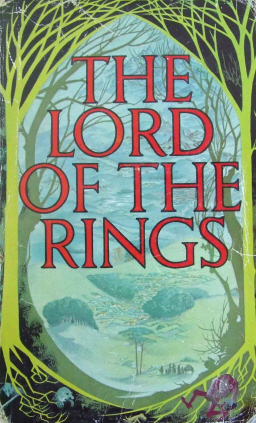In Defense of Elves
 I’m in the middle of another book, this one my fourth, and the first in a series of four. But writers are always in the middle of a book, always writing the next book, always revising the current one. And, worst of all, always reviewing and revising and dwelling endlessly on the books of the past.
I’m in the middle of another book, this one my fourth, and the first in a series of four. But writers are always in the middle of a book, always writing the next book, always revising the current one. And, worst of all, always reviewing and revising and dwelling endlessly on the books of the past.
One of the great things about the Arts is that you create specific works that are pretty much a time capsule of who you were and what you were capable of doing at one discrete point in your life. Each book is a little piece of you that you leave behind in the time stream, and every time you open it you get to re-live and remember what it was like to write that book. It’s a little bit like having a conversation with a younger self.
I don’t mean to sound pretentious when I say things like that. I think too much about what it means to be a writer, how we go about coming up with worlds and gods and believable characters, and then translate those ideas into words in such a way that a reader can experience them as well. Let’s be honest, words are probably the crudest, clumsiest, most difficult to wield of all the creative arts. We depend so much on the imagination of the reader. A writer doesn’t even get to read the book to the writer, and instead has to depend on the reader’s ability to pace the sentences correctly, read the dialogue with the right tonality… everything. It’s troublesome, when you really think about it. This is why I encourage you to go to readings when you get a chance, if only to hear the words in the writer’s voice.
Anyway. One of the books I’ve written is The Horns of Ruin, which was published by the fine folks at Pyr Books in 2010. I’ve been thinking about it a lot recently because what I was trying to do when I started that book is similar to what I’m trying to do with the current work. But at some point I changed my plan and went in a different direction.
That kind of alteration interests me. Where I ended up with The Horns of Ruin was a place that I really enjoyed, and I still think that’s the best of my three books. But it wasn’t my plan going in, and the ultimate decision on what to change and how to change it was directed by my relationship with fantasy at the time.
 See, I wasn’t entirely comfortable in the fantasy genre. That isn’t to say I wasn’t familiar with the genre, not by any means. Fantasy was my literary staple growing up, but it was a very typical kind of fantasy. I read Tolkien and his derivatives, and never strayed from that path. My college writing courses beat that out of me and taught me to write a kind of literature that is very little fun to write and a great deal of no fun to read. It was years before I shook myself of those habits and rediscovered the pleasure of fantasy, both reading and writing, and started to produce books that I enjoyed writing and other people enjoyed reading.
See, I wasn’t entirely comfortable in the fantasy genre. That isn’t to say I wasn’t familiar with the genre, not by any means. Fantasy was my literary staple growing up, but it was a very typical kind of fantasy. I read Tolkien and his derivatives, and never strayed from that path. My college writing courses beat that out of me and taught me to write a kind of literature that is very little fun to write and a great deal of no fun to read. It was years before I shook myself of those habits and rediscovered the pleasure of fantasy, both reading and writing, and started to produce books that I enjoyed writing and other people enjoyed reading.
What shocked me most was the sheer potential of fantasy. When I started to write The Horns of Ruin I was very much a kid in a candy shop, only instead of candy I had all these tools for literary narrative. And if there wasn’t a tool on the shelf, I could just close my eyes and will it into being.
That’s powerful stuff for a young writer. I think I got a little carried away with Eva Forge, though I enjoyed the process. Eva ended up as the last paladin of a dead god in a world where ideas became deities and monsters had chain guns and jet packs, and the whole book culminated in a war between gods. It was a great deal of fun to write, and I hope the reader has even a fraction of that fun when they read Eva’s story.
That said, both the gift and the danger of fantasy is that it can be anything, and do anything, and it’s easy to get carried away. There is a stripe of fantasy writer who sneers at the common tropes of fantasy, and I think those people should probably shove themselves in a bin somewhere and talk loudly to themselves, because they’re missing out on the central power of the genre.
The writers who have come before us have created powerful tools. Tolkien wrote endlessly about elves not because he had a thing for tall blondes, but because he found the elf to be a powerful tool for story. There is something ephemeral about them, something melancholy and beautiful that can’t really be translated into mopy humans. You need an elf to tell certain stories, and to not use an elf just because an elf has been used before is foolish. The painter doesn’t spend all of his time coming up with a new paintbrush, and the carpenter doesn’t mope around his workshop railing against the common tropes of hammer and awl.
Writers of fantasy should dare to push the boundaries of what we write, but we also need to recognize that sometimes, for some stories, you just need an elf, because an elf is what fits.
At the risk of being unoriginal… THIS.
I’ve written essays along similar lines myself, and I love the fact that other authors are doing the same. The tropes of fantasy are tropes for a reason; they’re a shorthand with which writer and reader communicate, and they’re–as you said–powerful tools.
If one falls back on the tropes simply because one is lazy, or believes they “should” be present, then yes, they’re a problem. But if a writer, after real thought, decides that they’re appropriate to the story–especially if s/he takes said tropes but does something new/different/unusual with them–than the result can truly be among the top tier of what fantasy can produce.
Great post Tim (and comment Ari), I very much agree on all points.
[…] Those of you who know all about my love for elves will appreciate why I’m linking to this. […]
[…] Akers, author of “The Horns of Ruin”, writes “In Defense of Elves“, where he defends using elves in fantasy fiction. Or, at least, that’s what it […]